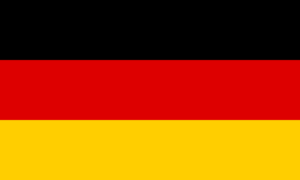
When you’re learning German, one of the first things you might notice is the use of capital letters. It’s a bit different from English and can be quite interesting! Let’s dive into the rules and reasons behind capital letters in German, with a touch of fun. 🎉
1. Nouns Always Start with a Capital Letter 🏰
In German, all nouns start with a capital letter. This is one of the most distinctive features of the language. Whether it’s a person, place, thing, or idea, if it’s a noun, it gets a capital letter.
Examples:
- der Hund (the dog) 🐶
- die Katze (the cat) 🐱
- das Haus (the house) 🏠
- die Freiheit (freedom) 🕊️
2. Proper Nouns and Names 🌍
Just like in English, proper nouns and names are capitalized. This includes names of people, cities, countries, and brand names.
Examples:
- Deutschland (Germany) 🇩🇪
- Berlin (the capital city) 🏙️
- Angela Merkel (former Chancellor of Germany) 👩💼
- BMW (the car brand) 🚗
3. The First Word in a Sentence 📝
The first word of every sentence is always capitalized, just as in English. This rule is easy to remember and apply.
Examples:
- Das Wetter ist schön. (The weather is nice.) ☀️
- Heute lernen wir Deutsch. (Today we learn German.) 📘
4. Capitalization in Titles 📚
In German titles, only the first word and any nouns are capitalized. This is a bit different from English, where most important words in a title are capitalized.
Examples:
- Der Herr der Ringe (The Lord of the Rings) 💍
- Ein Sommer in Deutschland (A Summer in Germany) 🌞
5. Pronouns: A Special Case 🤔
Unlike English, pronouns in German are not typically capitalized, except for the formal “Sie” (you) and its possessive form “Ihr” (your).
Examples:
- Kann ich Ihnen helfen? (Can I help you?) 🙋♂️
- Ihr Auto ist hier. (Your car is here.) 🚙
6. Capital Letters for Emphasis 🔥
Sometimes, Germans use capital letters for emphasis, especially in informal writing or online communication. This is similar to how we might use ALL CAPS in English.
Examples:
- Das ist WICHTIG! (This is IMPORTANT!) ⚠️
- Ich bin SO müde. (I am SO tired.) 😴
Quick Recap 📝
- Nouns: Always capitalized (der Hund, die Katze)
- Proper Nouns: Always capitalized (Deutschland, Berlin)
- First Word in a Sentence: Always capitalized
- Titles: First word and nouns capitalized (Der Herr der Ringe)
- Pronouns: Generally not capitalized, except for formal “Sie” and “Ihr”
- Emphasis: Sometimes capital letters are used for emphasis
Practice Makes Perfect 🏆
The more you read and write in German, the more natural these capitalization rules will become. So, don’t worry if it seems tricky at first. Keep practicing, and soon you’ll be a pro at using capitals in German! 🎓
Viel Erfolg beim Lernen! (Good luck with your learning!) 🍀
Leave a Reply
You must be logged in to post a comment.